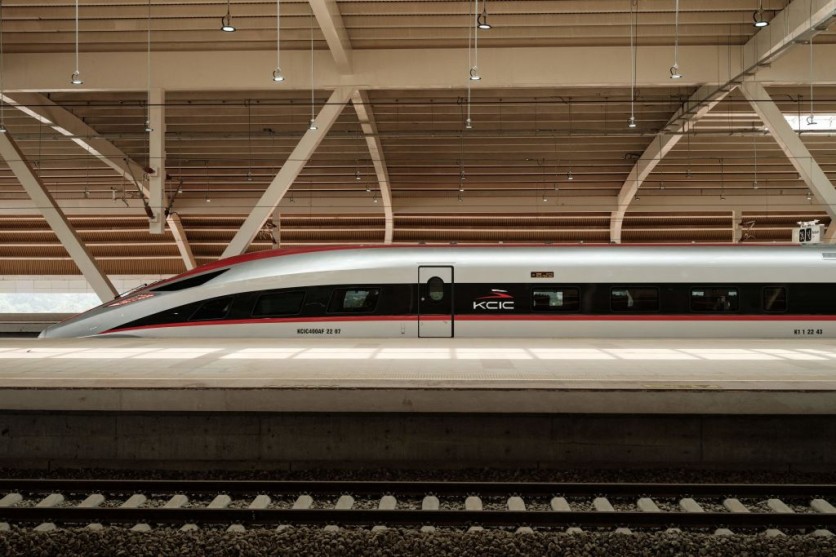Indonesia is ushering in the debut of Southeast Asia's inaugural high-speed railway. This groundbreaking project is poised to significantly reduce travel time between the capital city and another major urban center, condensing the current three-hour journey to a mere 40 minutes.

Condensing Three-Hour Journey to 40 Minutes
Indonesia has marked a historic moment in its transportation history with the inauguration of Southeast Asia's first-ever bullet train. The project, known as the "Whoosh" high-speed rail, connects the bustling capital city of Jakarta with Bandung, one of West Java's major hubs, in a remarkable 40-minute journey.
Interesting Engineering reported that this ambitious project, with a total cost of $7.3 billion, is a testament to Indonesia's commitment to modernizing its transportation infrastructure, albeit with significant involvement from Chinese state-owned firms as part of the Belt and Road initiative.
"Whoosh" has been intricately engineered to endure the challenging tropical climate of Indonesia, prioritizing both performance and passenger well-being. It boasts a cutting-edge safety system that can promptly and efficiently address unforeseen circumstances like earthquakes and floods, ensuring continuous safety of passengers during their travel.
A notable highlight of the Jakarta-Bandung high-speed rail initiative is its favorable environmental influence. Running solely on electricity and devoid of direct carbon emissions, the "Whoosh" harmonizes seamlessly with Indonesia's persistent endeavors to curtail its carbon footprint.
By presenting a practical and effective substitute to individual automobiles, this project aspires to combat the congestion-related pollution plaguing both Jakarta and Bandung. President Joko Widodo has underscored the significance of transitioning to mass transit systems, emphasizing the annual economic toll of congestion that exceeds $6.5 billion.
Receiving Funding
Associated Press reported that the inception and realization of the Jakarta-Bandung high-speed rail endeavor, initially inked in 2015 as a constituent of China's Belt and Road Initiative, were beset by a series of formidable obstacles throughout its evolution.
Challenges stemming from disputes over land acquisition, environmental apprehensions, the unforeseen disruption caused by the COVID-19 pandemic, and the ensuing escalation of expenses caused the project's budget to surge from its initial projection of 66.7 trillion rupiah ($4.3 billion) to 113 trillion rupiah ($7.3 billion).
The project's successful materialization was greatly reliant on substantial financial backing from China, facilitated through loans provided by the China Development Bank.
The successful launch of the Jakarta-Bandung high-speed rail has spurred discussions about the network's expansion. Time reported that plans are already underway to extend the line to Surabaya, a significant port and the capital of East Java Province.
This expansion initiative holds the promise of interconnecting major cities like Semarang and Yogyakarta, facilitating enhanced regional accessibility and promoting tourism to cultural landmarks such as Borobudur, renowned as the world's largest Buddhist temple.
The inauguration of Indonesia's inaugural bullet train marks a momentous stride in the country's transportation history. Beyond providing a rapid and environmentally-friendly commuting alternative, it solidifies Indonesia's economic ties with China.
Related Article : Japan's New MagLev Bullet Train Just Hit 300+ MPH





